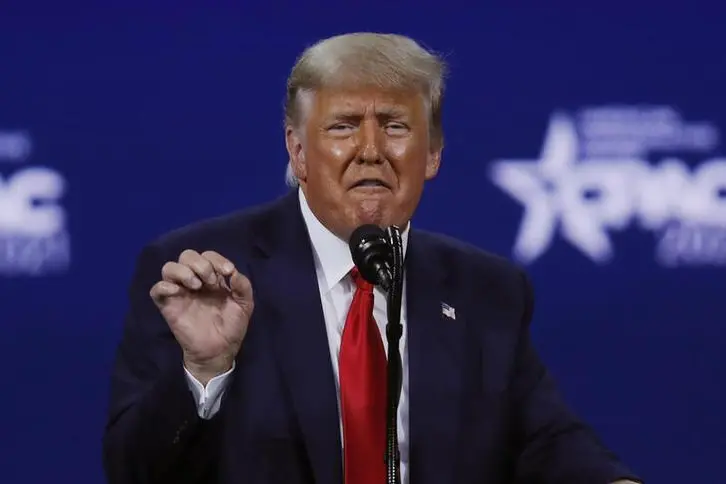PHOTO
(The author is a Reuters Breakingviews columnist. The opinions expressed are her own.)
WASHINGTON - Facebook's oversight board has given the $900 billion social network a mix of support and criticism over its indefinite suspension of Donald Trump. The board on Wednesday upheld Facebook's January decision to ban the former U.S. president, its biggest call to date. It also said the company needed to apply a specific penalty, not just an open-ended suspension. It's a usefully transparent decision. But it’s a reminder that Washington has not yet grappled with content limits for Big Tech.
The panel, which started issuing rulings this year, is a respectable attempt at self-regulation. Facebook plowed $130 million into a trust, overseen by people independent of the social network, to fund it. The 20 global panel members, a group that will grow to 40, have backgrounds in free speech, human rights and constitutional law. Users can appeal the company's decisions, or as in this instance, Facebook can refer cases. The board's decisions are binding on the company.
It opens up an opaque process. The rationale underlying the board's decisions is made public. There is also public input: The board received almost 9,700 comments on the Trump case. The panel agreed that he created an environment for possible violence, but said the indefinite suspension was inappropriate. Rather than letting Mark Zuckerberg's company off the hook by deciding for him, it tossed that issue back to Facebook insisting the company should specify a clearer penalty.
The board has in most other cases gone against the company's decisions. It has also been critical of Facebook, noting some content rules are vague, inconsistent with international human-rights standards, contradictory or not made public. That all adds up to a big improvement on ad hoc calls by Zuckerberg and his colleagues.
But as a Facebook creation, the board’s decisions only apply to that company even though Twitter, Alphabet’s YouTube and others face similar issues. The panel also doesn’t have any power to penalize Facebook. And for all the efforts to make it arm's-length, members are ultimately paid by the company through the trust.
Meanwhile in Washington, not one of dozens of bills designed to set rules for companies like Facebook has yet been passed by Congress. A Federal Trade Commission antitrust lawsuit could take years to play out, too. In the absence of government regulation, the oversight board will have to do.
CONTEXT NEWS
- On May 5, Facebook’s independent oversight board upheld the company’s decision to ban former U.S. President Donald Trump from posting content on the eponymous social network and Facebook-owned Instagram. Facebook referred the case to the board in January after it indefinitely suspended Trump’s access in the wake of riots by some Trump supporters in the U.S. Capitol.
- Facebook also asked for policy recommendations on suspensions when the user is a political leader.? While the board provided some guidance, it declined to decide on the right penalty for Trump and said Facebook's indefinite suspension was not appropriate and the company needed to apply and justify a defined penalty, such as a time-limited suspension or the permanent disabling of his account.
- Facebook announced the establishment of the board in 2018 and established a trust fund to pay its eventual 40 members. The board's decisions about "what to take down, what to leave up, and why" are independent and binding on Facebook unless implementing them could violate the law.
(The author is a Reuters Breakingviews columnist. The opinions expressed are her own.)
(SIGN UP FOR BREAKINGVIEWS EMAIL ALERTS http://bit.ly/BVsubscribe | Editing by Richard Beales and Amanda Gomez) ((gina.chon@thomsonreuters.com; Reuters Messaging: gina.chon.thomsonreuters.com@reuters.net))





















